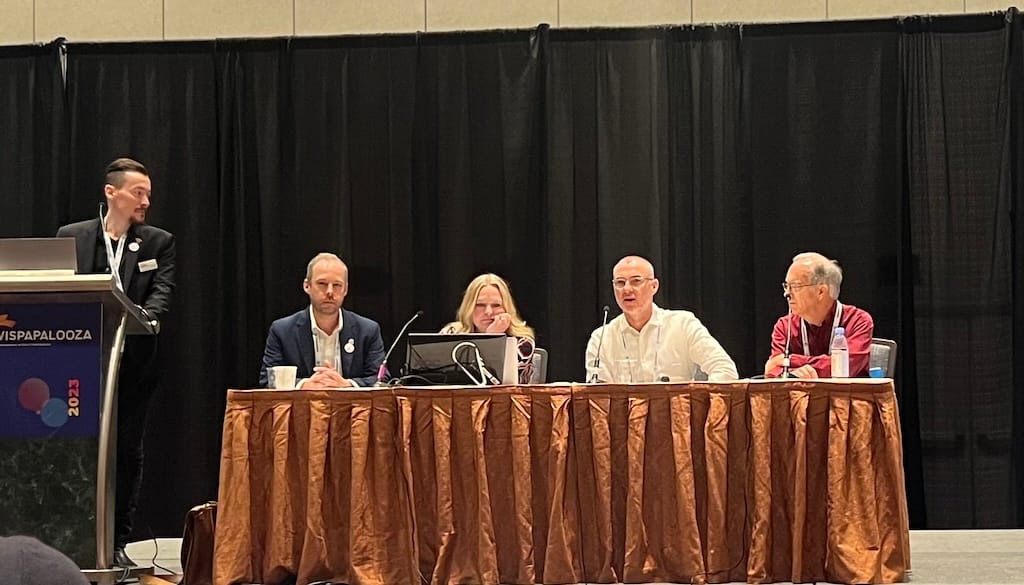WISPA Urges Members to Engage State Broadband Offices Ahead of BEAD
Advocacy on high-cost thresholds could help fixed wireless providers get BEAD funds.
Jake Neenan

LAS VEGAS, October 11, 2023 – The state policy head for the Wireless Internet Service Providers Association urged Wednesday that fixed wireless broadband providers engage state offices and legislators on including them in BEAD plans.
The $42.5 billion Broadband Equity, Access and Deployment program prioritizes fiber because of the high speeds it is capable of providing. BEAD guidelines exclude unlicensed spectrum from its definition of reliable broadband and require states to consider non-fiber technologies only when fiber would be too expensive to deploy.
States can set the cost threshold at which they do that. This is where WISPs – wireless internet service providers – can push for inclusion in BEAD plans, said Steve Schwebel, WISPA’s state advocacy manager.
Some states will not be able to get fiber to every household lacking adequate broadband with their BEAD allocations, Schwebel said, and WISPs should talk with state broadband offices about setting a low enough threshold to allow fixed wireless providers to compete for grants in hard-to-reach areas.
“We can be a good partner in helping a state find a solution to that problem,” he said at WISPAPALOOZA, the annual conference of small and fixed wireless broadband providers.
The trade group has hired state lobbying group 50State to help in this effort. Colm O’Comartun, a partner at the firm, echoed Schwebel’s sentiment.
He encouraged WISPs to think about “regular engagement with our local elected officials and regulators.”
WISPA had a hand in setting Ohio’s high-cost threshold – about $5,100 per location – for a state grant program, Schwebel said. He added Pennsylvania is also consulting with WISPA on its BEAD threshold.
States are in the process of drafting initial proposals for implementing the program, due to the National Telecommunications and Information Administration by December 7. Those proposals will outline states’ plans for their high-cost thresholds.
Schwebel also encouraged WISPs to fill out Broadband Data Collection forms with information on locations they provide with broadband service. Participating in the recently launched Federal Communication Commission program keeps states informed on how fixed wireless providers are already operating in their communities and helps maintain good relationships with state officials, he said.
BDC data is due to the FCC each year on March 1 and September 1.








Member discussion